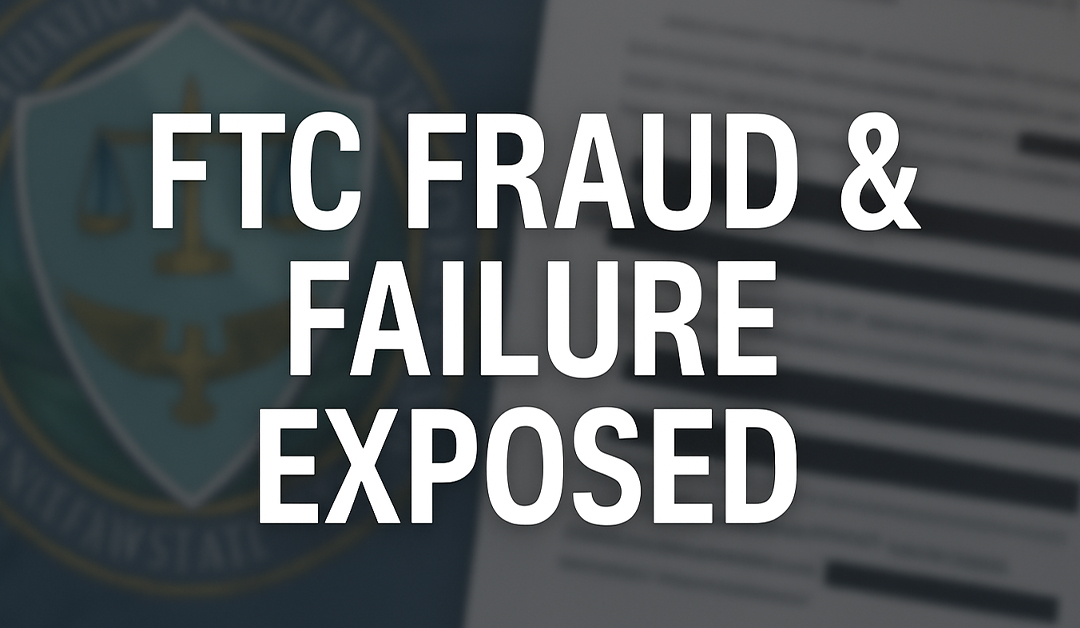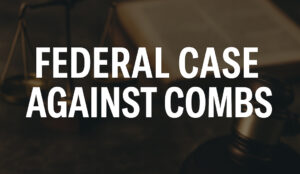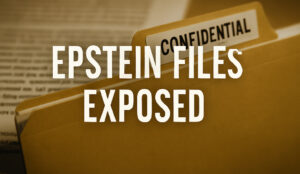A newly released batch of closed investigations by the FTC’s Office of Inspector General (OIG) from 2023 and 2024 exposes misconduct ranging from corruption and wire fraud to conflict of interest violations and unauthorized government resource use.
The document, obtained under FOIA, outlines a pattern of both criminal and administrative wrongdoing within the Commission - in some cases, by high-ranking staff themselves.
"These reports don’t just reflect technical violations," said one former federal ethics official.
"They show how deeply personal misconduct can penetrate regulatory agencies."
🛐 The "Jesus Survives Ministries" Fraud
A Texas-based criminal enterprise masquerading as a church was uncovered in a case involving William and Deborah Lucas and their son, Brian Corpian.
The trio falsely presented themselves as clergy for the shell church Jesus Survives Ministries, submitting fraudulent identity theft reports to the FTC’s Consumer Sentinel Network - a database used by law enforcement.
Their goal?
To support phony car loan applications, falsify payroll for PPP and EIDL loans, and secure hundreds of thousands of dollars in pandemic relief aid.
They were ultimately convicted of:
- Bank and wire fraud
- Money laundering
- False statements to the FTC
- Witness tampering
All three pleaded guilty and now face up to 30 years in prison.
🧑⚖️ DOJ Declines Two Conflict-of-Interest Cases
Two FTC attorneys were found to have participated in regulatory investigations while simultaneously holding stock in - or seeking employment with - the companies under investigation.
In both cases:
- The attorneys failed to recuse themselves in time
- Each violated 18 U.S.C. § 208(a), the federal law governing conflicts of interest
- One had provided input on enforcement strategies
- The other had direct contact with outside counsel at the company he was applying to
"This was a clear breach," OIG concluded. But DOJ opted not to prosecute, citing lack of criminal intent.
The OIG agreed, characterizing the violations as "careless but not malicious."
🧑💼 $1,000 Fraud - Big Ethics Violations
An FTC employee, identified only as [REDACTED], applied for an EIDL pandemic loan in 2020 under the pretense of running a music business. But the business:
- Had no physical location
- Was administratively dissolved
- Was not operational during the year cited
Despite this, the employee:
- Claimed $100,000 in revenue
- Was listed as the sole owner
- Signed false documents
- Received a $1,000 loan advance
Worse, the investigation found that:
- She used her FTC government laptop to submit IRS tax forms
- She did not seek ethics approval for her outside business activity
- She lied in written interrogatories, claiming she didn’t make certain financial withdrawals that she had, in fact, personally signed for
"This reflects a deep disregard for ethical and financial transparency," wrote the Inspector General in the closing memo.
Despite evidence of potential violations of wire fraud, false statements, and unauthorized government IT use, the DOJ again declined prosecution, citing a "lack of criminal intent."
🕵️ Military Stalking & Identity Theft: The Mayhue Case
One particularly disturbing case involved Alpha Omega Mayhue, a former U.S. Army servicemember.
According to FTC and Department of Defense investigators, Mayhue:
- Used stolen identities of fellow soldiers
- Filed fraudulent applications and impersonated victims
- Made sexual threats
- Committed cyberstalking, identity theft, and false filings with banks and agencies
He was indicted and ultimately pled guilty to:
- 1 count of conspiracy to commit identity theft
- 7 counts of Social Security misuse
- 21 counts of false statements
- 1 count of cyberstalking
He faces over 150 years in federal prison.
⚖️ What This Says About the FTC
This report illustrates the fragility of public trust inside America’s consumer protection watchdog.
Employees engaged in:
- Conflicts of interest
- Unauthorized side hustles
- False statements to federal agencies
- Use of FTC resources for personal gain
And while some faced justice, multiple instances resulted in no criminal charges, due in part to the DOJ’s threshold for prosecution and the internal decision-making of OGC.
"It’s not always about intent," one former OIG staffer commented.
"It’s about integrity. And that’s where these agencies need rebuilding."
📂 The Bigger Picture
The FTC’s OIG report should serve as a blueprint for oversight - not just a postmortem.
With more remote work, looser enforcement, and broad discretionary power among ethics officials, government agencies are now navigating a murky terrain of ethics, accountability, and enforcement priorities.






